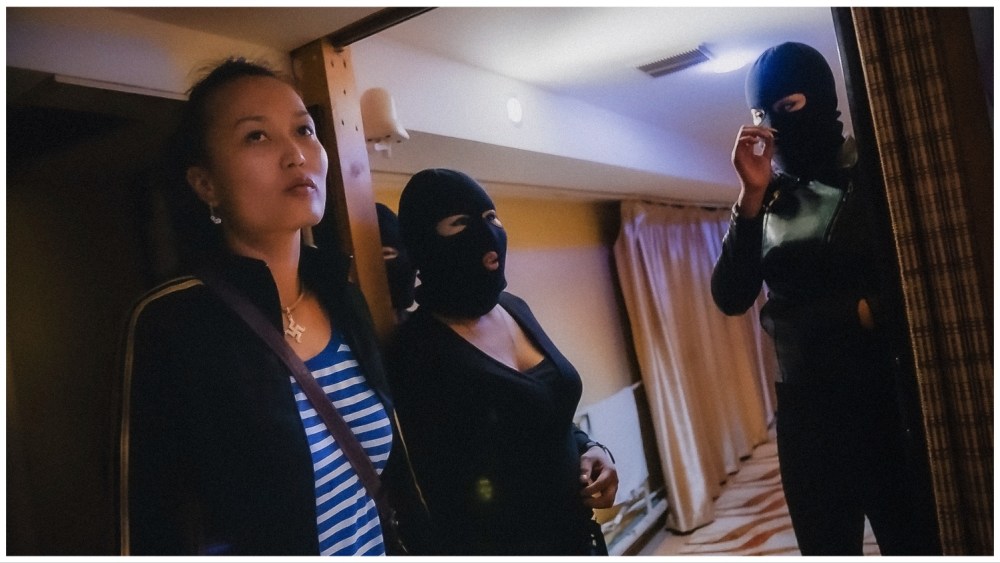Taskovski Picks Up CPH:DOX Competition Entry ‘Daughter of Genghis’
Taskovski Films has acquired world rights to the Danish doc “Daughter of Genghis,” produced by “The Lost Leonardo’s” Andreas Dalsgaard for Elk Film. The debut feature of award-winning photo-journalists Kristoffer Juel Poulsen and Christian Als will world premiere in the F:ACT competition section of the leading international documentary festival CPH:DOX in Copenhagen. Variety has secured the trailer in exclusivity.
“‘Daughter of Genghis’ is a compelling exploration of global extremism, delving into emotional dynamics and pathways to radicalization,” said Irena Taskovski, CEO of U.K.-based Taskovski Films. “Against the backdrop of Mongolia’s struggle for sovereignty amidst geopolitical tensions, the film highlights the resilience of its main character, Gerel Byamba.”
“With its potent blend of geopolitical relevance and nuanced character portrayal, the film promises significant commercial potential and wide audience appeal,” she added.
The huge collective filmmaking effort, which involved numerous trips between Denmark and Mongolia and more than 200 hours of footage from two cameras, first started in August 2015, when Als and his former colleague from the Danish School of Journalism Knud Brix decided to investigate the rise of right-wing extremism in Mongolia, to set it in a global context. Brix later left the project to join the Danish newspaper Ekstra-Bladet as editor-in-chief.
“Together with Knud, we did a research trip in Mongolia; we knew it wouldn’t be easy to infiltrate this milieu, but I had experience in getting access to underworlds,” said Als, who’d covered several wars and disaster zones, in an interview with Variety. This is when he first encountered the charismatic Gerel, leader of the ultra-nationalist female-only movement Gerel Khas. While combating prostitution, the crushing influence of neighboring China, and longing for the past glory of her nation under Genghis Khan rule, Gerel was also struggling to raise her son Temuulen on her own.
“She immediately stood out, not only because of her stature, but because of her fierce personality and vision. She was dreaming of a better future for Mongolia, with women at the heart of it,” Als said.
Dalsgaard, who brought to the project his anthropological background, personal knowledge of Central Asia and 15-plus year experience in doc filmmaking, said what convinced him to focus on Gerel’s story was the fact that “her vision was inconsistent with her actions.” “She had clearly been on the wrong path, for many years. We rarely see this in documentaries. Either women are role models or victims. Here, we had a very complex character, bad and good at the same time, struggling to find her inner self and to be a decent mother.”
The producer points out that when the filmmaking team first approached her, she had just broken away from the male neo-Nazi gangs to set up her women-only group, which “embraced the swastika as an ancient Buddhist symbol, standing for spiritual power and strength. She still had a radical right-wing agenda, but had renounced the Nazi discourse.”
In the film, we see Gerel transform. As her gang falls apart, she gradually renounces her violent methods, confronts her past traumas and secrets that she shares with Temuulen, while letting the filmmakers enter her inner-journey of self-acceptance.
Crucial to the filmmaking team’s ability to bring their project to fruition was their collaboration with anthropologist Elizabeth Fox, who had been leading research on Mongolia since 2012 and served as translator and line producer on the film. Als and Juel Poulsen also praised the work of editor and co-writer Estephan Wagner (“Those Who Jump,” “Songs of Repression”), as well as editing supervisor Per K. Kierkegaard (“The Cave,” “Armadillo”).
Discussing their observational cinematic technique, Dalsgaard said having two cameras made it possible to edit and film at the same time, and the natural conversations and crucial encounters in the film were the result of the tightly-knit relationship with Gerel, who simply invited the filmmakers to capture those scenes.
“As we kept coming back, again and again to Mongolia, we gained a lot of trust from Gerel, who gradually opened up,” added Juel Poulsen. “This allowed us to be part of extraordinary scenes.”
“Just hanging out with Gerel, talking, and sometimes not even filming, was the recipe,” Als said.
Ultimately, Dalsgaard hopes that “Daughter of Genghis” will challenge the traditional, often clichéd vision that people have of Mongolia, as “an exotic nation of nomads and eagle hunters. Here we have a truly contemporary story, which digs into the complexities of nationhood, of being an indigenous nomadic people, but in a very modern context,” he underscored.
The seasoned producer and director of the multi-awarded “The War Show” also sees the film as a means to engage in the topical debate of nationalism.
“At a time where we are experiencing huge societal divide, in the U.S. and Europe, it is crucial to understand where nationalist and populist sentiments come from. And this film shows, from a human perspective, what leads to extremism and violence,” claimed Dalsgaard, before adding: “Gerel gets us into her trauma that fuels her hate, and takes us on her journey, away from that. This is how she can make a constructive contribution to Mongolia, which was always what was driving her.”
The documentary was produced by Elk Film, in co-production with France’s Pumpernickel Films and Sweden’s Mantaray Film. Broadcasters involved include Denmark’s pubcaster DR and Norway’s web channel VGTV.
Besides “Daughter of Genghis,” Taskovski Films will be showcasing in CPH:DOX’s Highlight section Nemanja Vojinovic’s “Bottlemen,” Sarajevo fest’s best doc last year.

“Daughter of Genghis”
Courtesy of Kristoffer Poulsen, Christian Als

